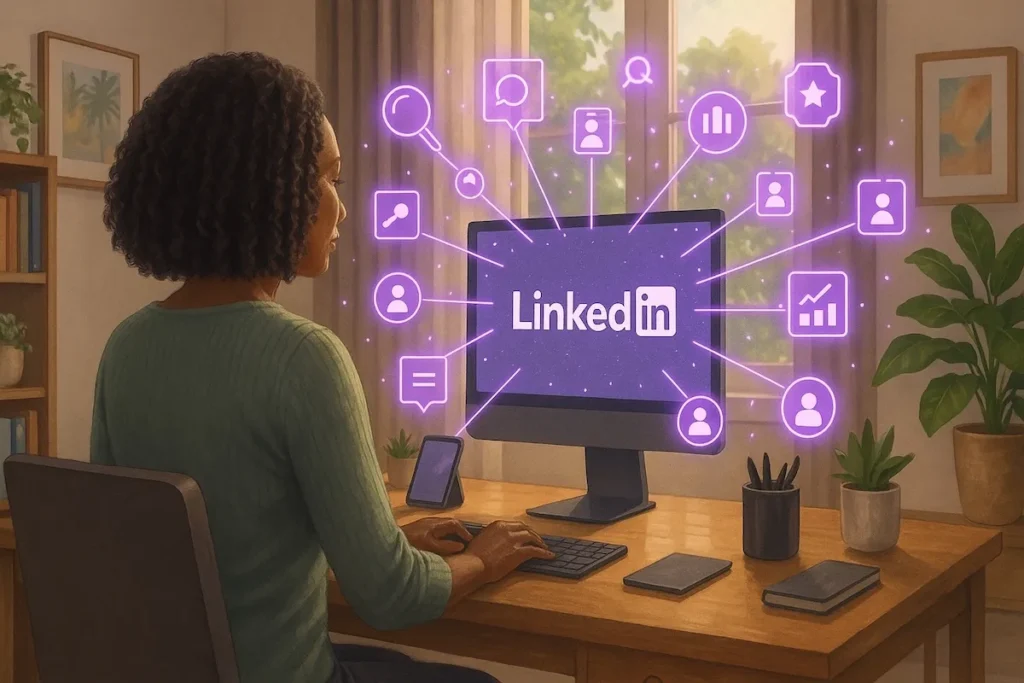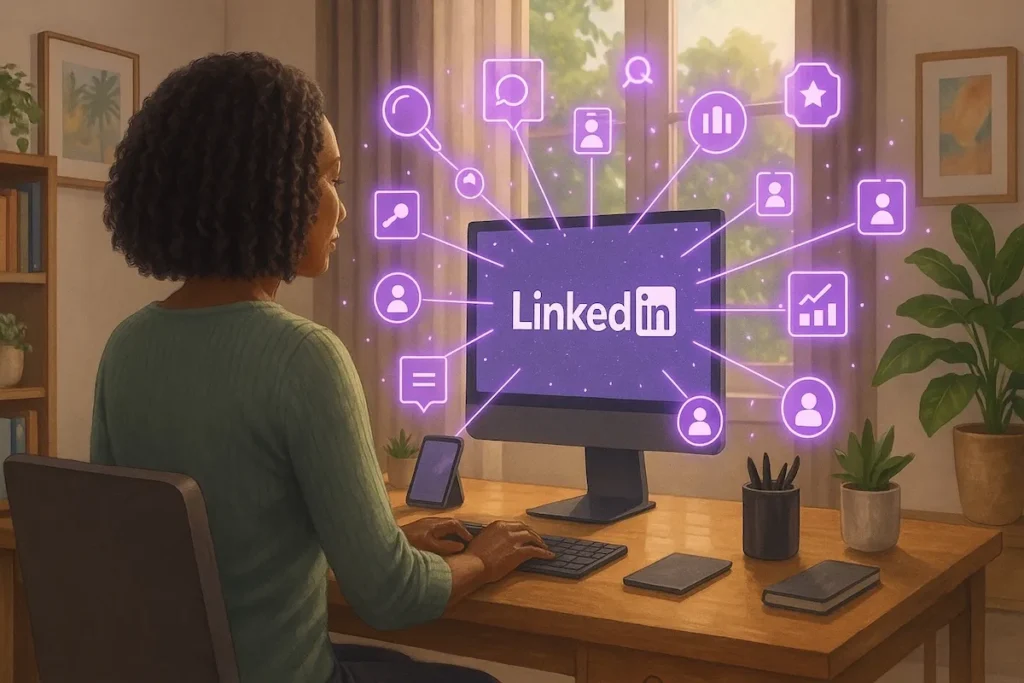Introduction
The world of business coaching has changed dramatically in the last few years. In 2025, executives, entrepreneurs, and startups don’t just look for a coach; they look for a trusted authority who demonstrates proven results, clear frameworks, and online visibility. For freelance Business Coaches, authority is no longer a “nice-to-have” — it’s the difference between landing premium clients at scale and struggling to compete on price.
Building authority online doesn’t happen overnight. It’s the result of strategic positioning, consistent content, authentic relationships, and smart use of technology. The good news is that any coach can do it with the right roadmap. This playbook breaks down how freelance Business Coaches can stand out in 2025 and beyond.
1. 🧭 Niche Deep — Why Specificity Beats Generalization
One of the fastest ways to dilute your authority is to try and be everything to everyone. When freelance Business Coaches define a razor-sharp niche, they attract the right clients and repel the wrong ones. For example, instead of branding yourself as a “business coach for entrepreneurs,” niche down into “business coach for SaaS founders scaling from $1M to $5M ARR.”
Why this works:
- It shows you understand a specific market’s challenges.
- It makes your marketing sharper because your content speaks directly to pain points.
- It increases referrals — people know exactly whom to send your way.
👉 Pro Tip: Use LinkedIn’s advanced search to see where your target clients cluster. Many freelance Business Coaches in 2025 are blending market research tools like SparkToro or SimilarWeb to refine niches further.

2. 🎯 Signature Frameworks — Turning Experience into IP
Clients value predictability. They don’t just buy your time — they buy a proven process. That’s why the most successful freelance Business Coaches package their methods into signature frameworks. Think of it as your coaching “recipe.”
Examples of frameworks:
- A 5-Step Revenue Acceleration Model for B2B startups.
- A Leadership Reset Blueprint for managers facing burnout.
- A 90-Day Growth Sprint System for solopreneurs.
When you name and publish your framework, it becomes intellectual property. It’s easier to pitch in podcasts, write about in blogs, and showcase in webinars. Over time, your framework becomes synonymous with your brand — just like McKinsey has its “7S Framework.”
3. 📝 Content Pillars & SEO — Authority Through Education
Google remains one of the biggest lead generators for coaches. In fact, data shows that professionals search for “business coach + [problem]” thousands of times each month. If freelance Business Coaches build SEO-driven content pillars, they capture these high-intent searches.
How to structure content pillars:
- Choose 3–5 broad themes, such as “Scaling Businesses,” “Leadership,” “Team Productivity,” or “Sales Strategy.”
- Create cornerstone articles (2,000–3,000 words) for each theme.
- Build supporting posts that link back to the cornerstone (cluster model).
👉 Example: A cornerstone post on “How Freelance Business Coaches Help Startups Scale” could link to smaller posts like “5 Mistakes Startups Make in First Funding Round” or “How to Build Your First Sales Team.”
Consistency is key. Coaches who post monthly gain some traction, but those who publish weekly — across blogs, LinkedIn, and YouTube — see exponential growth.
4. 🎙️ Podcast Guesting & Audio Strategy — Becoming a Voice of Authority
Podcast consumption is booming in 2025. Executives now listen to industry shows during commutes or workouts, making podcasts the perfect channel for freelance Business Coaches to demonstrate expertise.
Instead of launching your own podcast (which can be resource-heavy), start by guesting. Appearing on podcasts lets you:
- Access engaged, pre-built audiences.
- Build high-quality backlinks to your website.
- Repurpose audio into blog posts, LinkedIn clips, and newsletters.
For instance, if you specialize in coaching e-commerce founders, appearing on shows like Ecom Edge Podcast or Shopify Masters immediately places you in front of decision-makers. Over time, these appearances stack up, signaling credibility.
5. 🔗 LinkedIn & Professional Platforms — Owning Your Digital Stage
LinkedIn continues to dominate the professional networking landscape. In 2025, it’s more than a CV site — it’s a publishing platform, a lead-generation engine, and a credibility hub.
Freelance business Coaches should treat LinkedIn as their primary digital stage. Here’s how:
- Post 2–3 times a week, mixing storytelling with practical advice.
- Share client wins (with permission) to build social proof.
- Use LinkedIn newsletters to distribute long-form content monthly.
- Experiment with LinkedIn Live Q&As or workshops.
👉 Example: One coach specializing in remote team leadership runs a monthly LinkedIn Live series called “Friday Fix,” where they solve audience-submitted challenges. Within six months, their followers doubled, and inbound leads increased 40%.
6. 🤝 Community & Cohorts — Building Movements, Not Just Clients
Authority grows faster when you create a community around your expertise. In 2025, more freelance Business Coaches are shifting from 1:1 models to group coaching, masterminds, and online cohorts.
Benefits:
- Scalability — You impact more people at once.
- Social Proof — Cohorts generate success stories quickly.
- Engagement — Communities turn clients into advocates.
Platforms like Circle, Skool, and Mighty Networks make it easy to run private communities where members exchange ideas, support each other, and celebrate wins. This builds not just authority but a long-term ecosystem.

7. 🧾 Social Proof & Digital PR — Making Results Visible
Authority without proof is just noise. To stand out, freelance Business Coaches must systematically collect and showcase results. This includes:
- Case Studies with clear before/after metrics.
- Testimonials (ideally video) from happy clients.
- Media Mentions in digital publications or podcasts.
In 2025, platforms like HARO (Help a Reporter Out) and Qwoted make it easier to get quoted in press articles. Even one or two mentions in niche industry outlets can give a coach outsized credibility.
👉 Example: A coach helping health startups appeared in TechCrunch’s wellness section. That single feature led to three new clients and a speaking gig at a health innovation summit.

8. 🤖 Tools, AI & Automation — Scaling Smartly
With AI tools advancing rapidly, freelance Business Coaches have powerful allies for scaling authority. But the golden rule is: AI supports, you lead.
Practical uses of AI for coaches in 2025:
- Drafting blog outlines and social captions.
- Transcribing and summarizing coaching sessions.
- Generating email nurture sequences.
- Creating quick explainer videos with text-to-speech tools.
What AI cannot replace: your insights, empathy, and original frameworks. The most successful freelance Business Coaches combine AI efficiency with human depth — saving time while amplifying impact.
Conclusion
Authority isn’t built overnight, but it compounds. By 2025, the playbook for freelance Business Coaches is clear:
- Go deep into a niche.
- Create signature frameworks.
- Build content pillars that rank.
- Guest on podcasts and repurpose.
- Treat LinkedIn like your professional stage.
- Foster communities and cohorts.
- Collect proof relentlessly.
- Use AI to amplify, not replace.
If you implement even half of these consistently for 12 months, you won’t just be another coach online. You’ll be the go-to authority clients recognize, respect, and recommend — the kind of coach who commands premium rates and lands high-profile opportunities.
In 2025, authority is the new currency. Start stacking it today.
External Links & References
- HARO (Help a Reporter Out)
- LinkedIn Creator Programs & Trends
- HubSpot Content Marketing Resources
- Podcast Growth & Ad Spend Data
Also Read: Metaverse Freelancers in 2025: How to Start and Scale a Profitable Virtual Career

